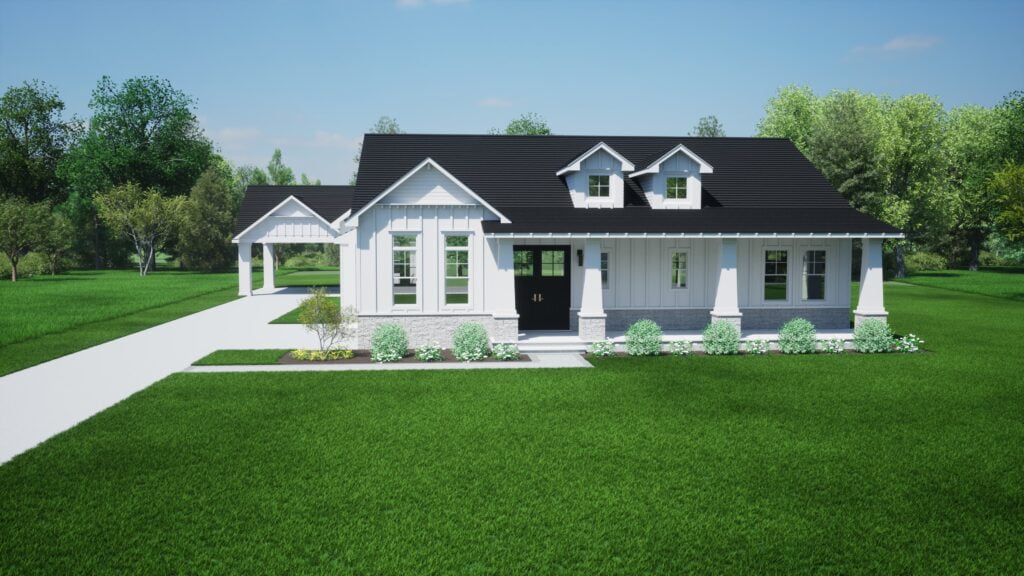Navigating The HOA Approval Process: Everything You Need To Know

If you’re considering purchasing a home in a neighborhood with a Homeowners Association (HOA), it’s important to understand the HOA approval process.
From understanding the steps involved to the common requirements and restrictions, this article will provide you with everything you need to know about navigating the HOA approval process.
Whether you’re looking to expedite the process, avoid potential issues, or explore alternatives, we’ve got you covered.
So, let’s dive in and explore the ins and outs of the HOA approval process.
Key Takeaways:
- Understand the importance of following the HOA approval process and its consequences if not followed.
- Know the common requirements and restrictions for HOA approval, including necessary documents and 3D renderings.
- Be prepared for the HOA approval process, including potential denials and alternatives to HOA approval.
What Is an HOA?
HOA, short for Homeowners’ Association, is a governing body that oversees and manages residential communities, enforcing rules and regulations to maintain community standards and property values.
HOAs play a vital role in maintaining the overall aesthetics and standard of living within a community. They often have the authority to enforce guidelines on architectural designs, landscaping, and property maintenance to ensure a cohesive and attractive environment.
HOAs are responsible for managing common areas such as parks, swimming pools, and clubhouses, ensuring they are well-maintained and accessible to all residents. They may facilitate community services such as garbage collection, security patrols, and social events, fostering a sense of belonging and camaraderie among homeowners.
What Is the HOA Approval Process?
The HOA approval process refers to the formal procedure through which homeowners seek authorization from the association for various property-related modifications or activities.
What Are the Steps Involved in the HOA Approval Process?
The steps in the HOA approval process typically involve homeowners submitting formal requests or applications to the association, which are then reviewed by designated committees or management representatives.
Following the submission, the review phase commences. During this stage, the committee thoroughly evaluates the application to ensure it meets HOA guidelines and regulations. This includes considering factors such as architectural integrity, adherence to community standards, and potential impact on property values.
Once the review is completed, the committee makes a decision and communicates it to the homeowner in a timely manner. Effective and transparent communication is crucial in maintaining trust and cooperation between the association and its members.
Why Do HOAs Have Approval Processes?
HOAs implement approval processes to ensure that property modifications and activities align with community guidelines, architectural standards, and the overall aesthetic and functional harmony of the residential area.
HOAs have a vital responsibility in maintaining a visually appealing and cohesive neighborhood. This is achieved through careful evaluation of proposed changes or additions to properties, ensuring the community’s uniformity and aesthetic appeal. Preserving property values and promoting a sense of belonging among homeowners are key outcomes of these approval processes.
The guidelines set by HOAs serve to uphold the overall ambiance of the neighborhood, maintaining a certain level of quality and standard. This is crucial in fostering a sense of pride and uniformity within the community, creating a harmonious living environment for all residents.

What Are the Common Requirements for HOA Approval?
Common requirements for HOA approval often include submission of detailed plans, obtaining necessary permits, adhering to architectural guidelines, and securing appropriate insurance coverage for the proposed modifications or activities.
When seeking HOA approval, it’s crucial to carefully document the proposed changes to the property. This typically involves providing comprehensive plans that outline the specifics of the proposed modifications.
Obtaining the required permits from local authorities is essential to demonstrate compliance with legal and regulatory standards.
Strict adherence to the architectural guidelines established by the HOA is fundamental. This may involve maintaining the aesthetic harmony of the community, respecting size and design restrictions, and using approved materials.
Obtaining and maintaining appropriate insurance coverage is critical. This includes liability insurance to protect against potential damages or injuries resulting from the proposed modifications or activities.
What Documents are Required for HOA Approval?
Documents commonly required for HOA approval include detailed project plans, contractor licenses, insurance certificates, and any relevant permits or approvals from local authorities.
It is crucial for HOA approval documentation to present a comprehensive overview of the project, including architectural designs, material specifications, and landscaping plans.
Ensuring regulatory compliance with local zoning laws, building codes, and environmental regulations is imperative for a successful approval process. Professional certifications and qualifications of the contractors involved must also be meticulously documented to instill confidence in the board members reviewing the application.
By presenting a thorough and well-organized set of HOA approval documents, homeowners can expedite the review process and demonstrate their commitment to upholding community standards and regulations.

3D Renderings For HOA Approval Process
Utilizing 3D renderings as part of the HOA approval process can provide visual clarity and detailed representations of proposed property modifications, aiding in the review and decision-making by the association.
By leveraging the capabilities of 3D renderings, homeowners and architects can convey design concepts with unrivaled precision, allowing the HOA to grasp spatial arrangements and aesthetic impacts with remarkable fidelity.
These visual representations enable a comprehensive understanding of how the proposed modifications will work together with the existing environment, fostering a more informed and efficient review process.
What Are the Common Restrictions for HOA Approval?
Common restrictions for HOA approval often encompass limitations on structural modifications, exterior color schemes, landscaping alterations, and noise-generating activities to maintain community harmony and architectural coherence.
These limitations are put in place to safeguard property values and ensure that the community’s visual appeal and tranquility are maintained.
The approval process can involve meticulous scrutiny of design choices, architectural integrity, and adherence to neighborhood covenants. Residents may find themselves navigating detailed guidelines and obtaining approvals for seemingly minor adjustments.
Compliance with HOA restrictions may affect property resale potential and the overall livability of the neighborhood, making it essential for homeowners to consider these constraints when making any changes to their homes.
How Long Does the HOA Approval Process Take?
The duration of the HOA approval process can vary based on factors such as the complexity of the proposed modifications, the efficiency of the association’s review procedures, and the extent of community involvement or feedback requirements.
When considering the timeline for HOA approval, it’s important to recognize that more complex projects may necessitate additional time for thorough evaluation.
The efficiency of the association’s review procedures plays a critical role in expediting or delaying the approval process. Community involvement and feedback requirements can also impact the duration, as gathering and incorporating input from residents may extend the review period.
To streamline the process, proactive communication and clear documentation of proposed modifications can help mitigate potential bottlenecks and facilitate a more efficient review.
What Are the Consequences of Not Following the HOA Approval Process?
Failure to adhere to the HOA approval process may result in enforcement actions, fines, forced reversals of modifications, legal disputes, or limitations on future property usage, impacting homeowners’ compliance and relationship with the association.
Non-compliance with approval requirements can significantly disrupt the communal harmony within a neighborhood, potentially causing tensions between homeowners and the association.
Disregarding the approval process can lead to a negative impact on property values, as unresolved disputes and lack of compliance may deter prospective buyers. These repercussions not only affect the individual property owner but also influence the overall dynamics of the community, creating a challenging environment for all stakeholders involved.
How Can I Expedite the HOA Approval Process?
Homeowners can expedite the HOA approval process by ensuring thorough documentation, proactive communication with the association, addressing potential concerns in advance, and demonstrating a commitment to compliance and community welfare.
One effective strategy for expediting the approval process involves organizing all relevant documents in a comprehensive manner. Homeowners should ensure that their application packages are complete and contain all necessary information, making it easier for the association to review and approve.
Maintaining regular and open communication with the HOA board and management team is essential. Proactively addressing any concerns and providing clear, detailed explanations can help prevent unnecessary delays.

What Should I Do If My HOA Approval is Denied?
If a homeowner’s HOA approval is denied, they can explore options such as appealing the decision, seeking mediation or compromise with the association, revising the proposal based on feedback, or evaluating alternative means to achieve their objectives within the guidelines.
When facing an HOA denial, it’s essential to approach the situation with a level head and a proactive mindset.
Appealing the decision is one avenue to consider, as it allows the homeowner to present their case and address any misunderstandings or misinterpretations.
Seeking mediation or compromise with the association can foster open communication and potentially lead to a mutually acceptable resolution.
Furthermore, revising the proposal based on the feedback received can demonstrate a willingness to collaborate and meet the association’s requirements.
If the initial plan doesn’t align with the guidelines, exploring alternative means within the HOA’s framework can offer new pathways to achieve the homeowner’s goals.
How Can I Avoid HOA Approval Issues?
Homeowners can proactively avoid HOA approval issues by familiarizing themselves with community guidelines, seeking early input from the association, engaging in open dialogue with neighbors, and aligning property modifications with established standards and best practices.
By acknowledging the importance of communication and collaboration, homeowners can foster a positive relationship with the HOA, paving the way for smoother approval processes.
Staying informed about local regulations and zoning laws and participating in community meetings and events can contribute to a deeper understanding of the association’s expectations and facilitate constructive conversations.
Embracing a solution-oriented approach allows homeowners to address potential concerns preemptively, demonstrating their commitment to uphold the community’s values and rules.
What Are the Alternatives to HOA Approval?
Alternatives to HOA approval may include seeking municipal permits, conforming to local zoning regulations, complying with building codes, or exploring property modifications within individual property boundaries and legal frameworks.
Homeowners facing challenges with obtaining approval from their homeowners’ association (HOA) have several alternative pathways to make modifications to their properties. One option is to engage directly with municipal authorities to obtain necessary permits within their property limits. This ensures compliance with local zoning regulations and building codes, aligning with the regulatory framework in their area.
What Should I Consider Before Purchasing a Home in an HOA?
Before purchasing a home within an HOA, consider evaluating the association’s rules, fees, governance structure, community amenities, enforcement history, and the alignment of its regulations with your lifestyle and property aspirations.
When considering joining a homeowners association (HOA), it’s important to thoroughly review their governing documents. These include the CC&Rs, bylaws, and financial statements, which provide insight into the association’s financial health and operational guidelines. Additionally, conducting a regulatory assessment to ensure compliance with local laws and understanding any pending legal actions or disputes is crucial.
Another important aspect to consider is the community’s amenities and services. This includes recreational facilities, landscaping, and security. Evaluating these aspects will help determine if they meet your expectations and needs.
Conclusion
Understanding the HOA approval process, compliance requirements, and proactive engagement strategies is pivotal for homeowners to navigate property modifications, preserve community harmony, and foster positive relations with the association.
When homeowners familiarize themselves with the HOA approval procedures, they can expedite the process of obtaining necessary permits and permissions for property alterations or enhancements.
This not only helps in maintaining compliance with the community guidelines and local regulations but also fosters transparency within the neighborhood.
Considering homeowner responsibilities in adhering to the HOA’s architectural standards and maintaining property aesthetics contributes to the overall appeal, property values, and congeniality in the community.
Frequently Asked Questions
The HOA approval process refers to the steps that homeowners must take in order to get approval from their homeowners association for any changes or renovations to their property.
As a member of the homeowners association, you have agreed to follow the rules and regulations set by the HOA. This includes obtaining approval for any changes to your property to ensure they are in compliance with community standards.
The specific changes that require HOA approval can vary depending on your community’s rules and regulations. Generally, any changes to the exterior of your home, such as landscaping, renovations, or additions, will require approval.
The first step is to review your community’s rules and regulations to understand the process and requirements for obtaining approval. Then, you will need to fill out an application and submit it to your HOA for review.
The approval process can vary depending on the complexity of your project and the responsiveness of your HOA. It is best to submit your application as early as possible to allow for any necessary revisions or discussions.
If your HOA denies your request for approval, they should provide you with a reason for their decision. You may be able to appeal the decision or make necessary revisions to meet their requirements. It is important to communicate with your HOA to understand their reasoning and find a resolution.

Stay Connected with Opulent 3D Studio
Don’t miss out on the latest from the world of 3D rendering! Follow Opulent 3D Studio on our social media platforms. Stay updated with our recent projects, industry insights, and behind-the-scenes peeks into our creative process. Connect with a community of 3D rendering enthusiasts, share your thoughts, and be part of our growing network. Find us on:

